HIGHLIGHTS 2016
The end of the year is a time to look back at what we’ve accomplished and gather new ideas for projects and activities for the year to come, without losing sight of our main goal: to create knowledge and enrich the debate on the cooperative business model in order to demonstrate its relevance in modern economic and social systems. 2016 was a fruitful year at Euricse and we’d like to share some of the key results with you.
Cooperatives in Italy
During 2016, we continued measuring and monitoring the performance and the impact of Italian cooperatives. In addition, this year we enriched our economic and financial as well as occupational dataset on national cooperation. It now includes controlled enterprises as well as single cooperative sectors.
The main output of this research is the fourth edition of the report “Cooperatives in Italy”, which will be available in January 2017. Carlo Borzaga, scientific director of this research, provided a preview of the dataset at the Cooperative Economy Biennial held in October 2016.
The quality and quantity of our dataset allowed us to update and further integrate the economic-financial and occupational indicators. The forth report not only analyses the weight and role of cooperation in the Italian economy, but also considers its evolution and the overall performance of this peculiar entrepreneurial form.
Community cooperatives and social enterprises
In early 2016 we began to focus our attention on this topic, aiming to deepen t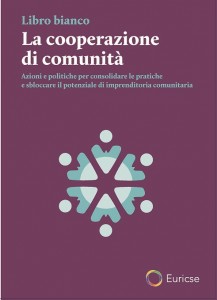 he understanding of community cooperatives as emerging entrepreneurial forms. We consider this form of cooperation to be an efficient model for counteracting recent economic and social transformations that negatively affect the development of both rural and urban communities. The aim of this line of research is to elaborate new institutional models and new organizational methods to understand and use the potential of cooperatives and social enterprises in the management of general interest services.
he understanding of community cooperatives as emerging entrepreneurial forms. We consider this form of cooperation to be an efficient model for counteracting recent economic and social transformations that negatively affect the development of both rural and urban communities. The aim of this line of research is to elaborate new institutional models and new organizational methods to understand and use the potential of cooperatives and social enterprises in the management of general interest services.
During 2016 we published a White paper on community cooperatives, which we officially presented at the Trento Economics Festival on June 4, 2016. We also contributed to the feasibility study entitled “Development of community cooperatives” conducted by the Ministry of Economic Development in collaboration with Invitalia, with the analysis of international best practices in Greece, UK, Germany and France.
ImpACT
This year our social impact activities conlcuded with a press conference held at Confcooperative-Federsolidarietà Veneto where we presented the results of Euricse’s research on evaluation of the impact of social cooperatives in this region. We applied our methodology –ImpACT, presented a few months ago in the position paper available in Italian.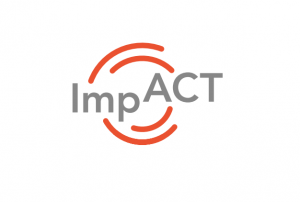
To date, we’ve tested and applied the ImpACT model to evaluate the impact of social cooperatives in Trentino, Friuli Venezia Giulia and Veneto. In particular, the data collected concern 275 social cooperatives and 1,268 stakeholders, including: users and their families, workers (disadvantaged and non-), volunteers, operators, external professionals and contracting enterprises. This research has given Euricse the chance to create comprehensive and useful datasets for the analysis of the territorial impact generated by social cooperation.
Social enterprises and their eco-systems: developments in Europe
The research was coordinated by Euricse and EMES network, on behalf of the European Commission for Employment, Social Affairs and Inclusion. Euricse was also responsible for up-dating the country report on Italy.
In Europe, the number of social enterprises is increasing and they are engaging in new fields. Many countries are introducing new legislation as well as new support schemes to boost the development of social enterprises. In addition, both public and private markets offer new opportunities for social enterprises to start up and grow. In particular, social economy and social enterprises have shown resilience and job retention during the economic crises and beyond.
These are just some of the findings of the research, which aims at improving the quality of the results of seven of the 29 country reports published in 2014, as part of the first Mapping study.
Publications
During 2016, our research on sustainability, specificity and potentiality of cooperative and social enterprises has continued both from the theoretical point of view and in the diverse fields of activity. We’d like to highlight three important publications produced this year either in whole or in part by Euricse: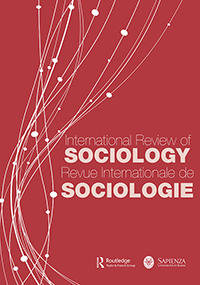
- The thematic section of two special issues of the scientific review “International Review of Sociology” (Volume 26, Issue 1, 2016) was curated by Euricse researchers Carlo Borzaga, Giulia Galera and Luca Fazzi. Papers published in this monographic section reconstruct the debate that has accompanied the emergence and development of social enterprises with a view to providing evidence of the advantages of collective participation for social enterprise emergence and growth.
- “The Handbook of Co-operative and Mutual Businesses”, edited by J. Michie, J. Blasi & C. Borzaga will be published in 2017 for the prestigious Oxford University Press. The book investigates all types of ‘member owned’ organizations, whether consumer co-operatives, agricultural and producer co-operatives, worker co-operatives, mutual building societies, friendly societies, credit unions, solidarity organizations, mutual insurance companies, or employee-owned companies.
- The volume entitled “Principles of European Cooperative Law. Principles, Commentaries and National Reports” will be released during 2017. The publication marks the closure of the project aimed at analysing cooperative legislation in European countries, started in 2009 and carried out by an international group of academics.
World Co-operative Monitor
This year, the World Co-operative Monitor, the annual report publi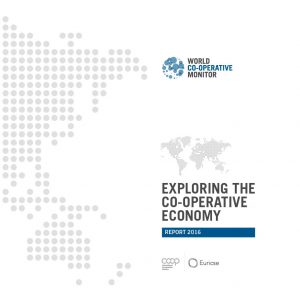 shed by the International Co-operative Alliance with the scientific and technical support of Euricse, has reached its fifth edition.
shed by the International Co-operative Alliance with the scientific and technical support of Euricse, has reached its fifth edition.
The project, widely considered the primary source for global statistics on the economic dimensions of the cooperative movement, includes a new feature in 2016: an analysis of the capital structure of the Top 300 cooperative enterprises. Also included in this year’s edition is a special section focusing on consumer cooperatives within the wholesale and retail trade sector.
The main findings were presented by Gianluca Salvatori at the International Summit of Cooperatives, which takes place in Quebec every two years.
Euricse and ILO join forces toward improving cooperative statistics
This joint initiative is part of the global effort around improving cooperative statistics. The 19th International Conference of Labour Statisticians (ICLS), held in Geneva in October 2013, recognized the importance of having more comprehensive and internationally comparable statistics on cooperatives. This decision is in line with the ILO Recommendation on the Promotion of Cooperatives, which encourages governments to ensure that national policies “seek to improve national statistics on cooperatives with a view to the formulation and implementation of development policies”.
The ILO was asked to report on progress in advancing cooperative statistics at the 20th ICLS session, which will take place in October 2018. Toward this end, the ILO has been undertaking a series of initiatives including a global mapping of country experiences in improving cooperative statistics. We are happy to contribute to the global mapping with an additional six country case studies.
The impact of cooperatives on the health of citizens
In 2016 we launched the research “Health cooperatives and mutuals worldwide – an analysis of the contribution to citizens’ health by cooperatives around the world”. The study, which is aimed at analysing the contribution of health cooperatives and mutuals to the promotion of citizen’s health within different national welfare systems, will be conducted in collaboration with IHCO (International Health Co-operative Organization, sectorial organization of the ICA).
SIBEC
The first national course offered by SIBEC, the Italian School on collaborative management of common goods, founded by Euricse, Labsus and the University of Trento, was successfully held between March and December 2016. Indeed, the results are positive in terms of participation as well as visibility. Enrolment is now open for the second edition of the course, which will begin in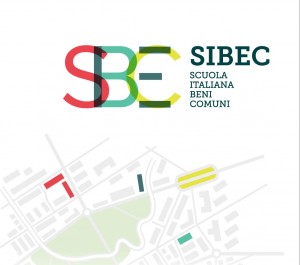 March 2017.
March 2017.
Among the successes of SIBEC, we are pleased to note the collaboration agreement signed with CSVnet to train managers and directors of the local CSV offices on a national level.
Regarding training at the local level, SIBEC brought to a successful conclusion a course in collaboration with the municipality of Trento and the local CSV, launched a programme with CSV Pavia and started developing an additional one with the municipality of Terni and ANCI Umbria network.
Master GIS
The 23 participants of the 2015/2016 edition of the Master in Management of Social Enterprises have received their diplomas. Their job placement rate is very positive: 10 graduates were hired by the organisation at which they conducted their internship, and four others 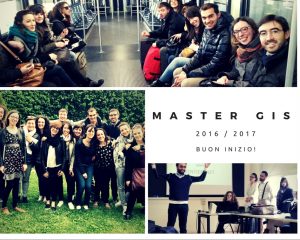 have found jobs in different organisations. As always, for the entire year following the course, Euricse will continue to monitor and help its students to enter the job market.
have found jobs in different organisations. As always, for the entire year following the course, Euricse will continue to monitor and help its students to enter the job market.
The new class of 17 students, coming from all over Italy with diverse academic backgrounds, has just begun the 2016/2017 academic year. The most significant innovation of this year’s Masters concerns the entry of the Department of Sociology and Social Research as well as of the Faculty of Law joining the Department of Economics and Management as the core promoters of the Master GIS.
